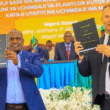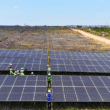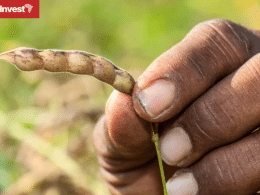Tanzania wine farmers in the highlands of Dodoma are expected to see their crops double in the next three to five years as a result of a viticulture initiative that is being headed by the Distell Group Limited, a South African company and a 35% stakeholder in Tanzania distilleries Limited (TDL).
Currently, TDL is one of the leading forces in the countries wine and spirits market, but operates just two cellars with the combined capacity of 800 tons per year, which results in the need to import a large portion of its wine from Distell.
Upon completion of the project, the vineyard will become a valuable source for both brandy and popular wines for the Tanzanian market.
In a report by Cape Business News, the projects leader and chief viticulturist, Dirk Bosman, explained the purpose of the project.
“The intention of the project is to increase the local content in TDL’s wine and brandy ranges, transfer skills, build capacity and increase job opportunities in an otherwise marginalized rural area,” he said, “Once the educational model and its execution have been refined, it may be possible to introduce similar initiatives to other sub-Saharan countries where there is a market for wines and in which Distell is involved.”
The Cape Business News has reported that, n order to improve the overall quantity and quality of the local vineyards, Mr. Bosman has been working to train Tanzanian farmers and extension officers in viticulture and low-tech vineyard management.
In addition, Mr. Bosman has also begun a series of trial plantings at the Makutopora Research and Training Centre near Dodoma, the location of the company’s 150 hectares of vineyards.
“A major part of our task will be to introduce appropriate pruning and trellising measures to ensure a single crop in August/September of a superior quality and output,” said Mr. Bosman, “The excellent results from our initial trial plantings have been immensely encouraging to growers and they are keen to follow the protocols we are proposing.”
Due to a lack of technology and limited funding, the vineyards are farmed almost entirely by hand and, because of a lack of irrigation water, most of the vineyards are dry land.
Mr. Bosman went on to explain that, for these reasons, in addition to the fact that the vineyards do not widely employ the use of chemicals in their wine production, the area was ideal for the training of farmers in the best methods to employ so as to maximize their output and minimize their effects on the environment at the same time.
“We are confident that with further plantings and improved farming techniques, it will be possible for wine farming to become a meaningful contributor to Tanzania’s agricultural GDP,” he said.










